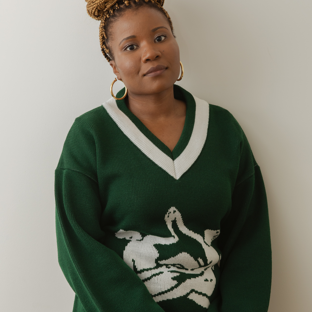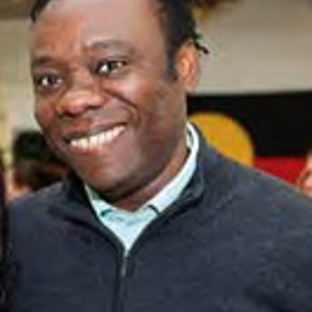The way the media reports on a community can have a powerful impact on the way the broader society perceives them. The less that’s known about that community, the more power the media wields, as a primary source of understanding.
Media coverage can foster understanding and empathy, by highlighting achievements by community members, sharing examples of collaboration and goodwill, and telling personal stories that illuminate challenges faced and struggles left behind. But it can also stoke prejudice and cement stereotypes.
How does the Australian media report on Africa and the African community – or communities – in Australia? Is there a perception gap between reporting and reality? And how does this impact on African-Australians?
Featuring

Santilla Chingaipe
Santilla Chingaipe is a filmmaker, historian and author, whose work explores settler colonialism, slavery, and postcolonial migration in Australia. Chingaipe’s critically acclaimed and award-winning documentary Our African ...

Stani Goma
Stani Goma is the presenter and producer of Flight 1067 to Africa on PBS FM every Sunday between 3pm–5pm. The programme features music from all over Africa, and takes the listener on a musical journey around the African continent to discover the rich and diverse sound of Africa.
Born and bred in the Congo, Stani grew up in Brazzaville, literally across the river from Kinshasa – the capital of African dance music. Growing up in such a musical environment undoubtedly instilled a deep passion and appreciation of African rhythm. Highly regarded as an experienced and knowledgeable presenter, Stani’s involvement in community radio started in 1990 soon after arriving in Australia.
Over the years, Stani has interviewed many African greats such as Hugh Masekela, Youssou Ndour, Angelique Kidjo, Baba Maal and Papa Wemba. He was the MC for the Miriam Makeba concert at the Sidney Myer Music Bowl in 2006.
His other professional activities include clinical pharmacy, research and education.
Ginny Stein
Ginny Stein is a reporter/producer and camera operator. She has spent much of her career working as a foreign correspondent and filming her own stories.
Stein was first posted overseas by the ABC to Thailand in 1997, and later to Indonesia, covering events such as the end of the Khmer Rouge in Cambodia, the overthrow of Indonesia's dictator Suharto and the violence surrounding the birth of East Timor as the millennium’s newest nation.
After five years as a correspondent for the ABC in Asia, she spent almost a decade working internationally as a video journalist filming and reporting for a range of programs including SBS TV's Dateline.
From Afghanistan and Pakistan to the Middle East, and throughout Africa and Asia, Stein filmed and filed stories ranging from upheaval to astounding human endeavour.
She has won numerous awards, including three Walkeys — two of which were won for stories she filmed and reported from Africa.
Her final assignment as the ABC’s Africa correspondent was to cover the funeral of South Africa’s first democratically elected President Nelson Mandela in 2013.
Since returning to Australia, she has turned her focus to regional and rural Australia, covering stories for Lateline and Landline.
Bertrand Tungandame
Bertrand Tungandame has worked as a journalist in print media in Belgium and Rwanda covering events in the Great Lakes Region of Central Africa. He migrated to Australia in 1997 and joined SBS in 1998 initially as a contributor to the African Program. He was also a contributor to SBS's French radio program in the early 2000’s. Bertrand is currently producing content for Living Black Radio – the Aboriginal and Torres Strait Islander’s program on SBS radio.
His work as a journalist has led him to interview people from all walks of life. Over the years he has reported on a wide range of topics from local community gatherings to major international events like the G20 and the Olympics. He is passionate about Africa, her history, her peoples and her rich cultural heritage.
